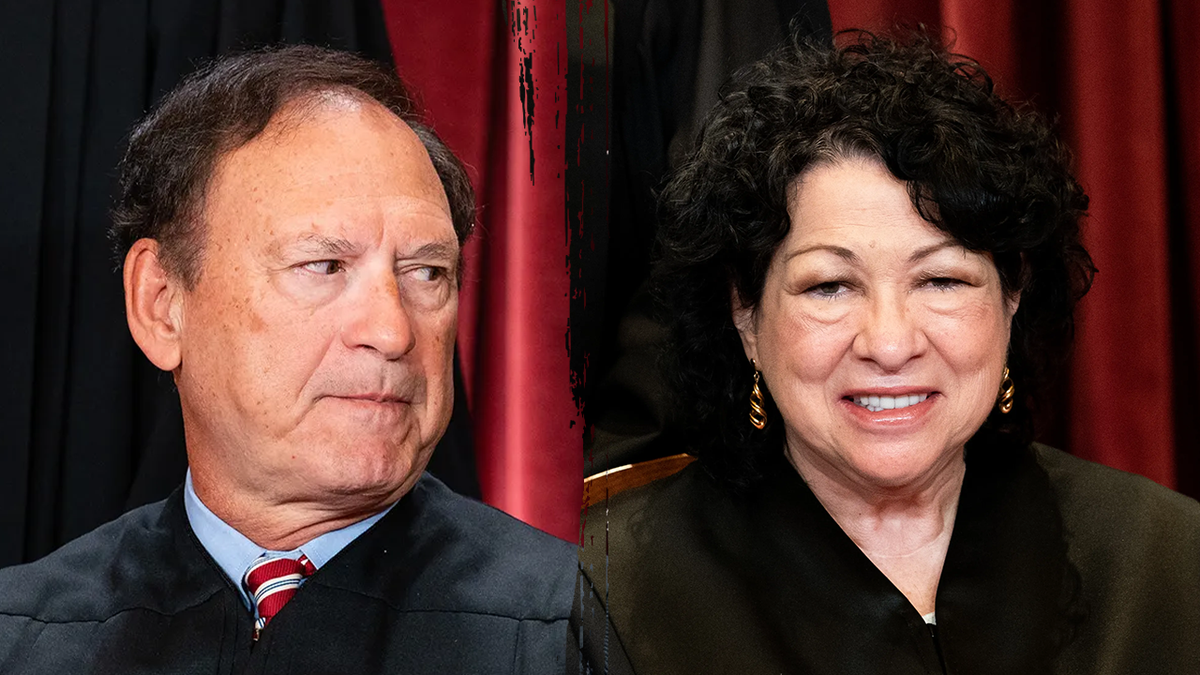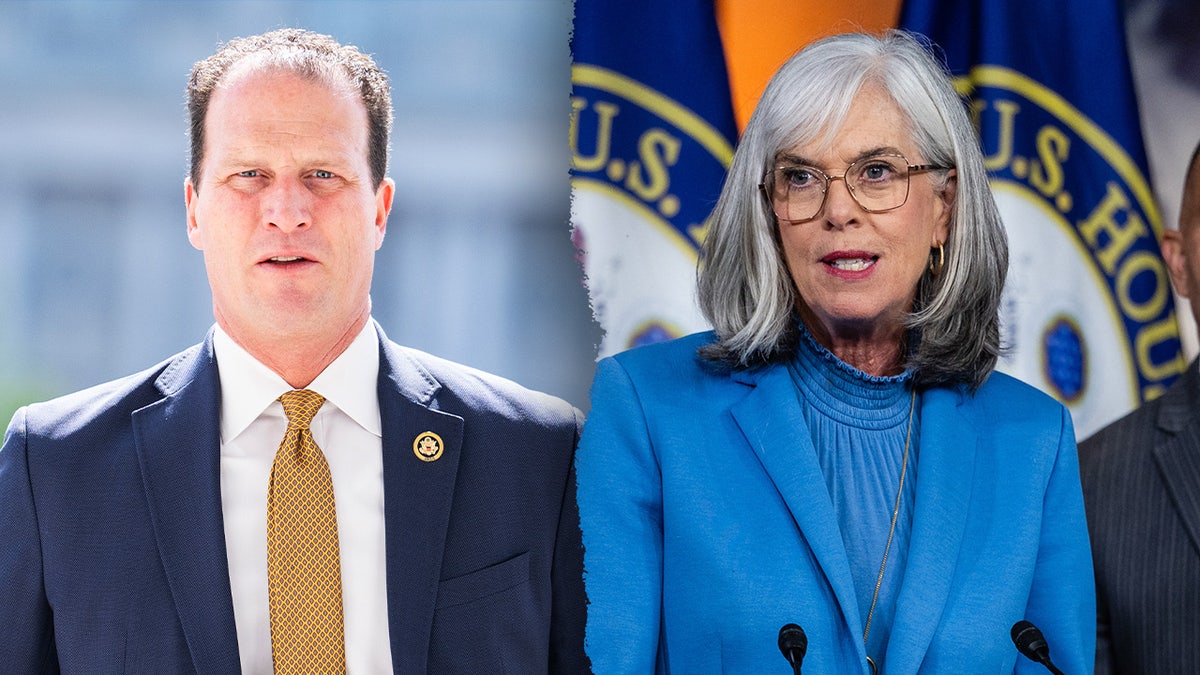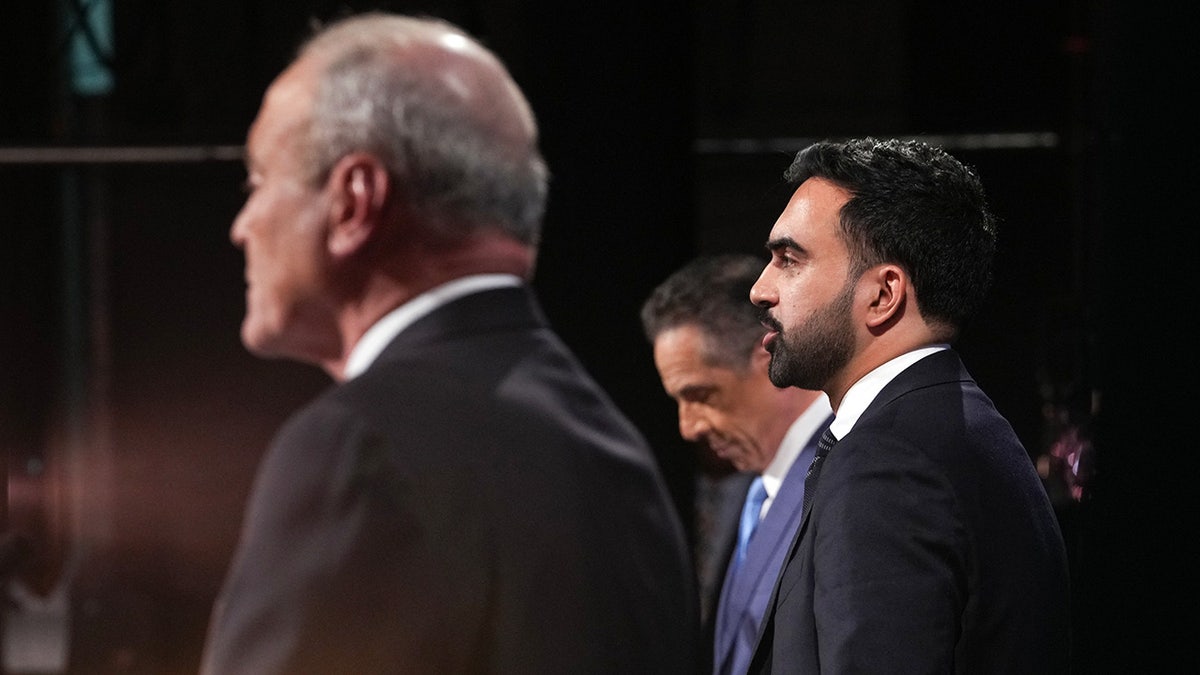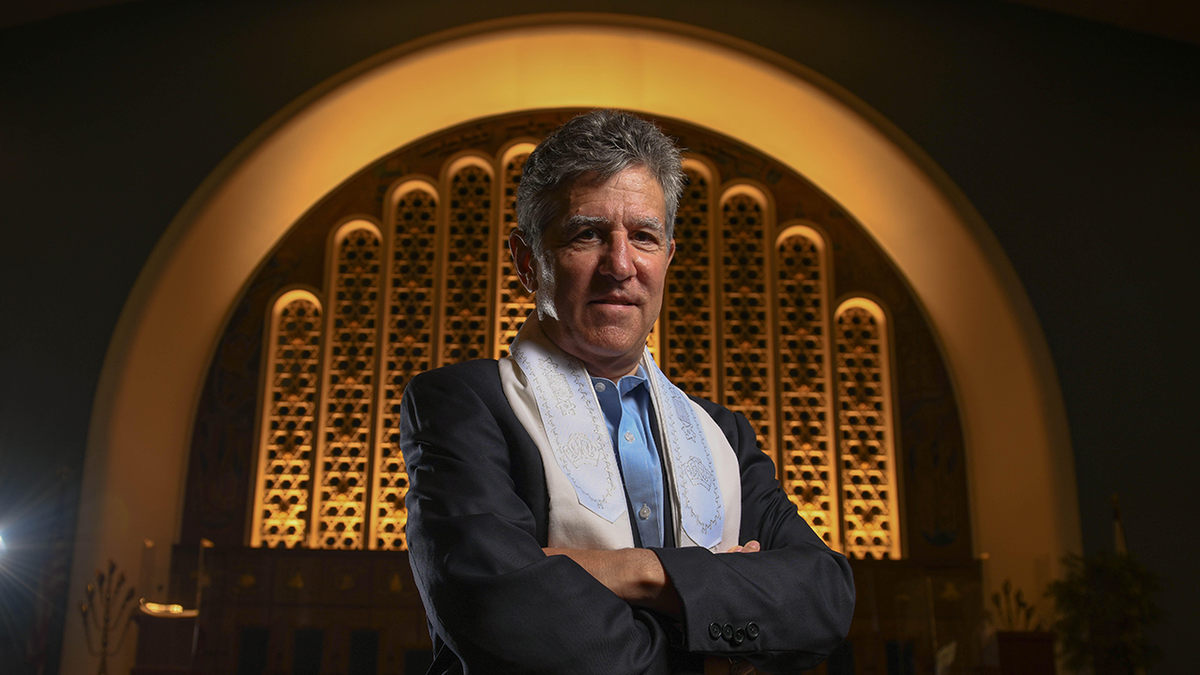INTERNACIONAL
Supreme Court sides against migrant in deportation case

NEWYou can now listen to Fox News articles!
The Supreme Court installed a tighter timeline for removable migrants to challenge their deportations as part of its decision on Thursday in a case involving a Jamaican immigrant who had tried to avoid being sent back to his home country.
The Supreme Court found that once migrants receive a final order of removal, a 30-day window for them to seek review of that order is triggered.
The ruling was roughly 5-4, with the three liberal justices dissenting and Justice Neil Gorsuch joining most of the dissent.
Pierre Riley, the Jamaican national at the center of the case, had followed the law and challenged his final removal order in the immigration court system. But when he attempted to seek review from the appellate court of the immigration court findings, the appellate court said its hands were tied because it had been more than a year since Riley had received his initial removal orders.
SUPREME COURT BLOCKS TRUMP EFFORT TO DEPORT VENEZUELAN MIGRANTS UNDER ALIEN ENEMIES ACT
A composite image shows illegal aliens aboard an ICE deportation flight and a detainee being escorted onto the aircraft by ICE agents, June 3, 2025. The high-risk charter flight was led by ICE ERO Dallas. (ERO Dallas)
Riley came to the United States on a six-month visa three decades ago. He never left, was arrested and convicted of drug felonies, and served in prison until 2021.
Immigration and Customs Enforcement moved to deport him to Jamaica in January that year, kicking off the weedy legal process involving Riley challenging his removal.
The chain of events that ensued showcases how migrants facing removal can end up going down a windy due process road in the immigration and federal courts.
In this case, Riley had 10 days under the law to challenge his removal in an immigration court, and he did. He argued that although he was removable, returning to Jamaica would put his life at risk because a drug kingpin there had killed two of his cousins and would likely go after him, too.
Riley invoked what is known as a «convention against torture» rule, which migrants can use to contest being deported to their home country.
An immigration judge, who is an administrative judge working within the Department of Justice, granted Riley «withholding of removal» to Jamaica, meaning he could be deported, just not to Jamaica.
GORSUCH, ROBERTS SIDE WITH LEFT-LEANING SUPREME COURT JUSTICES IN IMMIGRATION RULING

Justices Samuel Alito and Sonia Sotomayor. (Getty)
The government appealed the immigration ruling to the Board of Immigration Appeals, which overturned the immigration judge’s finding, meaning Riley could once again be deported to Jamaica.
Migrants’ next avenue of appeal is to ask a federal circuit court to review their deportation order, and Riley did this.
But upon reviewing Riley’s case, the appellate court found Riley was too late. The appellate court said that it had no jurisdiction to help him because the original removal orders he received in January 2021 are what set off a 30-day deadline to seek review of his deportation.
Writing for the majority, Justice Samuel Alito acknowledged the «legitimate practical concerns» of Riley’s case but said the law assumed immigration cases would be handled expeditiously and that the 30-day deadline being triggered right at the time a migrant is ordered removed should, in theory, be a non-issue.
«The Government reminds us that such proceedings have often lasted many months and even years. . . . That is surely not what Congress anticipated when it enacted the streamlined procedure,» Alito wrote in a footnote.
Attorney Dilan Esper noted on X that Thursday’s order could shed light on a recent controversial emergency order the Supreme Court issued this week that cleared the way for the Trump administration to deport migrants, including a group of men bound for South Sudan, to countries they are not from.
CLICK HERE TO GET THE FOX NEWS APP
The order on Thursday indicated that the law does not offer a clear avenue for migrants to raise convention against torture claims for third countries after they receive final removal orders.
Justice Sonia Sotomayor said in her dissent the majority opinion in Riley’s case did not make logistical sense.
«In holding that Riley was required to file his appeal 16 months before the order he sought to challenge existed, the court surely moves from the border well into the heartland of illogic and absurdity,» Sotomayor wrote.
INTERNACIONAL
Una «bomba meteorológica» amenaza a Francia y deja a París en estado de emergencia

Inundaciones y vientos huracanados
Transportes y rutas afectados
«¿Bomba meteorológica?»
INTERNACIONAL
Fox News Politics Newsletter: Adams to back Cuomo in NYC mayoral race

NEWYou can now listen to Fox News articles!
Welcome to the Fox News Politics newsletter, with the latest updates on the Trump administration, Capitol Hill and more Fox News politics content. Here’s what’s happening…
–Red state university student caught on video threatening lives of Charlie Kirk supporters: ‘Watch your neck’
-Curtis Sliwa vows to be Zohran Mamdani’s ‘worst nightmare’ if the Democratic socialist wins NYC mayoral race
-Undercover video exposes what Spanberger’s campaign organizer really thinks of her: ‘What the f—‘
NYC Mayor Adams to endorse Cuomo in race against Mamdani
New York City Mayor Eric Adams will endorse former New York Gov. Andrew Cuomo in the city’s mayoral race as he faces off against Democratic nominee Zohran Mamdani.
«As spokesman for Mayor Eric Adams, I can confirm that the Mayor will endorse former Governor Andrew M. Cuomo for mayor and intends to campaign alongside him,» Adams’ spokesman, Todd Shapiro, said in a statement to Fox News. «The time and locations for their joint appearances are currently being finalized.»
Adams declined to answer questions about Cuomo at an unrelated press conference Thursday morning…READ MORE.
New York Mayor Eric Adams poses with Independent candidate former New York Gov. Andrew Cuomo after Cuomo participated in the second debate for the upcoming mayoral election on Wednesday evening. (Al Bello/Getty Images)
White House
HOMEGROWN POWER: Apple building American-made AI servers ahead of schedule in new Houston facility, answering Trump call
NEW DETAILS: SCOOP: Trump’s Memphis crime crackdown locates dozens of missing kids, removes 109 gangbangers from streets

National Guard members began patrolling Memphis, Tennessee, in October as part of a federal task force established by President Donald Trump to combat what the administration says is violent crime in the city. (Brett Carlsen/Getty Images)
NO PEACE TALKS: Trump ‘not interested’ in de-escalation with ‘unhinged’ leader of Colombia, White House says
ON PAUSE: Trump freezes out Putin for lack of ‘enough action’ toward peace — future talks uncertain
BLUNT DIPLOMACY: Inside Trump’s ultimatum that forced Netanyahu to the table: ‘You can’t fight the world’

Israeli Prime Minister Benjamin, left, talks to President Donald Trump during a meeting in the Oval Office of the White House April 7, 2025, in Washington. (Kevin Dietsch/Getty Images)
World Stage
SKY VIOLATIONS: Russia violates NATO airspace in Lithuania amid Putin warning on long-range missiles
‘AMAZING BLESSING’: Vance visits church where Christians believe Jesus was crucified, resurrected amid Israel-Hamas ceasefire

Vice President JD Vance tours The Church of the Holy Sepulchre in the Old City of Jerusalem Oct. 23, 2025. (Nathan Howard/Pool/AFP via Getty Images)
NO MORE GAMES: After waffling between Russia and Ukraine, Trump slaps Kremlin with oil sanctions
Capitol Hill
SNAP OUT OF IT: Democrats under fire as food stamp funds run dry: 42 million Americans caught in shutdown fight
NO PAY FOR YOU: Essential workers left unpaid after Senate Democrats kill pay bill

Republican Study Committee Chairman August Pfluger is criticizing House Minority Whip Katherine Clark’s comments in a recent interview on the government shutdown. (Tom Williams/CQ-Roll Call, Inc via Getty Images; Eric Lee/Bloomberg via Getty Images)
HOSTAGE POLITICS: Top Republican slams Katherine Clark for admitting suffering families are «leverage» in shutdown battle
SOCIAL-IST STANDING: Bernie Sanders defends Maine Senate candidate under fire for wild Reddit comments

Senator Bernie Sanders, an Independent from Vermont and ranking member of the Senate Health, Education, Labor, and Pensions Committee, arrives for a confirmation hearing in Washington, July 16, 2025. (Valerie Plesch/Bloomberg via Getty Images)
Across America
HALF IN, HALF OUT: Trump yet to endorse in VA governor’s race — but also kept Youngkin at arm’s length

Virginia Lt. Gov. Winsome Sears, left; President Trump, right. (Al Drago/Getty Images; Anna Moneymaker/Getty Images)
MIXED BAG: New poll in key showdown for Virginia governor indicates single-digit race
FOOD FIGHT: Youngkin declares state of emergency over «Democrat Shutdown» depleting food stamp benefits for nearly 1M Virginians
AI ATTACK: Andrew Cuomo campaign walks back controversial attack ad targeting Mamdani voters

Democratic candidate Zohran Mamdani, right, Republican candidate Curtis Sliwa, left, and Independent candidate and former New York Governor Andrew Cuomo. (Hiroko Masiuke/POOL/AFP via Getty Images)
CAMPAIGN CLASH: Social media erupts after Cuomo, Mamdani rip each other during final debate: ‘Unmasked’
‘CALL TO ACTION’: NYC rabbis sound off on «unprecedented risk» Mamdani poses as hundreds of leaders sign «call to action»

Rabbi Ammiel Hirsch accused New York City mayoral candidate Zohran Mamdani of «fanning the flames of intolerance» with two weeks until Election Day. (Shahar Azran)
SECOND GUESSING: NYC socialist mayoral candidate Mamdani’s 911 plan called «worst idea» by former NYPD sergeant
Get the latest updates on the Trump administration and Congress, exclusive interviews and more on FoxNews.com.
elections newsletter
INTERNACIONAL
Lecturas para el fin de semana: cómo radicalizar el dolor

Habitar el dolor ajeno. ¿Es posible? Tomarlo con las manos, acobijarlo en el pecho, compungirse hasta el llanto, concentrarse en su textura, no dejarlo ir. La empatía trafica esa idea, pero, como escribió Alexandra Kohan, “no podemos entrar los dos en los zapatos de uno”. El otro es el otro y, en tanto otredad, es inquietante, imposible. En ese sentido, la literatura abre una posibilidad en el espacio, la de sumergirse en una narración ficcional que, al ser un artificio, radicaliza al extremo la emoción.
En algún punto, la lectura es un vacío. Un lugar sin notificaciones ni publicidad ni imágenes identificables. Esa zona donde el lenguaje imagina la pureza. Y si entendemos que la ficción no es un sinónimo de la mentira, sino una forma de contar la verdad, el lector se permite algo imposible: habitar el dolor ajeno. Porque el dolor está en el pecho de los personajes, en la atmósfera de las escenas, en la prosa, en la trama, pero no en él, que está del otro lado, ¿a salvo? Quizás ocurra exactamente lo contrario.
“Fijate, ¿lo llegás a ver? Casi no se ve, pero ¿no te parece asombroso ese alerce solo ahí, altísimo, resaltado en la llanura? Hasta tiene el tupé de competirle el protagonismo al horizonte». Un padre con una enfermedad avanzada y su hija viajan en auto hasta Buenos Aires: se tiene que hacer un estudio. Pero se detienen en un pueblo, en una casa, alguien familiar. Él fuma, ella lo reta. “¿Cómo no fotografiarlo?“, dice mirando el árbol, él que es fotógrafo. “¿Sin luz?”, pregunta ella. “Mañana, si se despeja (…) Es la última”.

La luz queda se llama la novela que acaba de publicar Diotima. Su autor es Alejandro Pereyra, escritor, guionista, director de cine. Es brevísima y la narración se agolpa en las páginas, no con apuro, sino con intensidad. “Voy a dejar la fotografía, Romina, antes de que ella me deje a mí“. Cuando ella le pide ”no te pongas trágico», que “va a salir todo bien”, él le dice: “No entendés, Romina. No es por mi cuerpo, por esa mierda que tengo. Solo que esta foto es el punto final perfecto. La vengo pensando hace tiempo”.
Después la literatura hace su trabajo: aparecen otras voces, el paisaje se vuelve una inundación, los pensamientos flotan y las intenciones vuelan. De pronto, “todo es de verdad, hasta la dulzura de mierda”. Y Arturo, el padre, el fotógrafo, sueña con otra foto, pero no es tan fácil. “Los días son todos diferentes” pero “la noche es siempre la misma”. Y la historia va cerrándose, la enfermedad no cesa, y “ya casi no se aguanta el dolor. Pero estate tranquilo, que siempre se trató de amor. Aunque no lo entiendan”.
Cuando Marie-Pier Lafontaine entendió que solo había dos opciones, escribir o prender fuego la casa familiar, escupió Perra. Son ochenta y pico de páginas intensas que narran una dura historia de abuso. Cuando estuvo fuera de esa cárcel de anhelos reventados, el testimonio se hizo literatura. Pero lo novedoso de este libro de 2020 y traducido el año pasado por Agustina Blanco para Ediciones Godot no es este acontecimiento —¿cuántos víctimas han podido narrar sus tragedias en libros?—, sino la mirada.
“Entre todas las leyes del padre, había una de índole fundamental: no contar”, comienza Perra. “De niña, disimulaba mis deseos en textos de ficción. Dos hermanas en fuga. Perseguidas por un monstruo de dos cabezas. Huían por sombríos bosques. Se armaban con ramas, palos. Hoy ya no escondo mis deseos. Quisiera que este texto diezmara a mi familia toda”, escribe esta canadiense nacida en 1988 en Montreal, dentro de “la parte francesa”, autora también de Armas para la rabia.

Por momentos, la hoja se pone de un negro completo con frases así: “Al padre le encanta hacernos saber que piensa en nosotras cuando eyacula. Se las arregla siempre para que lo oigamos”. O también: “Los alaridos se detienen. El padre sale del cuarto de mi hermana. Carraspea. Sus pasos resuenan hasta la otra punta del pasillo. Va al encuentro de la madre”. O: “Mi hermana y yo solo con tomarnos de la mano sabemos con certeza que sobreviviremos al padre”. O: “¿Nuestros vecinos nunca oyeron nada?”
Los recuerdos no se eligen, aparecen como un relámpago en la noche, pero elegimos qué contar. Desde las primeras páginas de Corazón de león de Monika Helfer, que acaba de ser traducido por Gabriela Adamo para Edhasa, sabemos que el hermano de la narradora está muerto. Lo que sigue es una novela en retrospectiva: un personaje que ya no existe, pero que aparece, intrépido y subversivo, en las escenas ahora narradas. Las historias son delirantes y divertidas, pero tienen la inocultable pátina de la tristeza.
Entre esos recuerdos aparece el día en que su hermano conoció a su actual marido, entonces su amante. Su marido estaba de viaje, sus hijos con los abuelos; la casa y el fin de semana para el romance. Y su hermano, tocó el timbre. “Los presenté, conversamos y tomamos vino y fumamos un poco de la hierba que él cultivaba; cuando se despidió, le dijo que le caía bien y que el hecho de que tuviera una relación conmigo, su hermana, solo podía entusiasmarlo, porque todo lo que me hiciera bien lo entusiasmaba”.

“¡Johnny, acabo de romper bolsa!“ En un pueblo del interior profundo de los Estados Unidos, año 1970 y pico, una mujer está a punto de dar a luz. Vive en el campo, en una cabaña junto a su esposo entre el frío y la soledad. Tienen treinta años y han esperado con mucha ansiedad este momento. Suben a la camioneta en las primeras horas de la mañana y conducen unos cuantos kilómetros hasta el hospital con la esperanza de conocer a su hijo, el primogénito. Sin embargo el bebé nace muerto.
A grandes rasgos, esa es la historia narrada en El nadador en el mar secreto, novela breve, profunda, sensible, que publicó William Kotzwinkle en 1975. Es autobiográfica, porque eso le ocurrió: perdió a su primer hijo ni bien salió de la panza de su esposa. Mientras el dolor se agitaba con violencia dentro de su pecho, se encerró en su estudio y se puso a escribir “con las lágrimas en los ojos desde la primera a la última página”. Una revista norteamericana la publicó en el viejo formato de novela por entregas.

La novela ganó varios premios; luego, el olvido. En 2019 la reeditó el sello argentino China Editora. El nadador en el mar secreto no ahonda en sentimientos, ni siquiera se demora en describirlos. La pareja protagonista atraviesa dos momentos de extremos: el parto y la muerte. En su brevedad, la narración adquiere potencia y genera efectos. ¿Qué efectos? Diría que esta novela convierte al lector, incluso al más insensible, en una criatura más vulnerable. Podría decirse que lo devuelve a la realidad.
En nombre de ser comprensivos, no dejamos de arrasar con el otro poniéndole nuestras suposiciones, nuestras atribuciones, nuestras fantasías. Creemos que el otro necesita lo que nosotros creemos que necesita, lo que nosotros necesitaríamos en su lugar. Y, muchas veces, sin ni siquiera haber escuchado del otro ningún pedido. No es poco frecuente que se diga “te entiendo, a mí me pasa lo mismo” y que se corra entonces la conversación hacia lo que me pasa entonces a mí. ¿Por qué hay que pasar por uno para entender al otro? Porque eso es justamente la comprensión. El asunto es, si resulta soportable acompañar a otro resistiéndose a entenderlo, aún en su incomprensibilidad, aún en su ilegibilidad.
“La empatía supone que entre el yo y el otro no hay nada: no hay fantasías, suposiciones, fantasmas, lenguaje: nada, nada de nada”, escribió Alexandra Kohan. “El otro nos es transparente y absolutamente escrutable del mismo modo en que el sí mismo se advierte transparente y escrutable”.

 DEPORTE2 días ago
DEPORTE2 días agoUniversidad de Chile vs. Lanús, por la Copa Sudamericana: día, horario y cómo verlo por TV

 CHIMENTOS2 días ago
CHIMENTOS2 días agoAdabel Guerrero confesó de qué famosa está enamorada y que le encantaría tener relaciones: «La China Suárez me sorprendió con su belleza»

 ECONOMIA3 días ago
ECONOMIA3 días agoScott Bessent oficializó el swap con la Argentina y afirmó: “No queremos otro Estado fallido en América Latina”
















